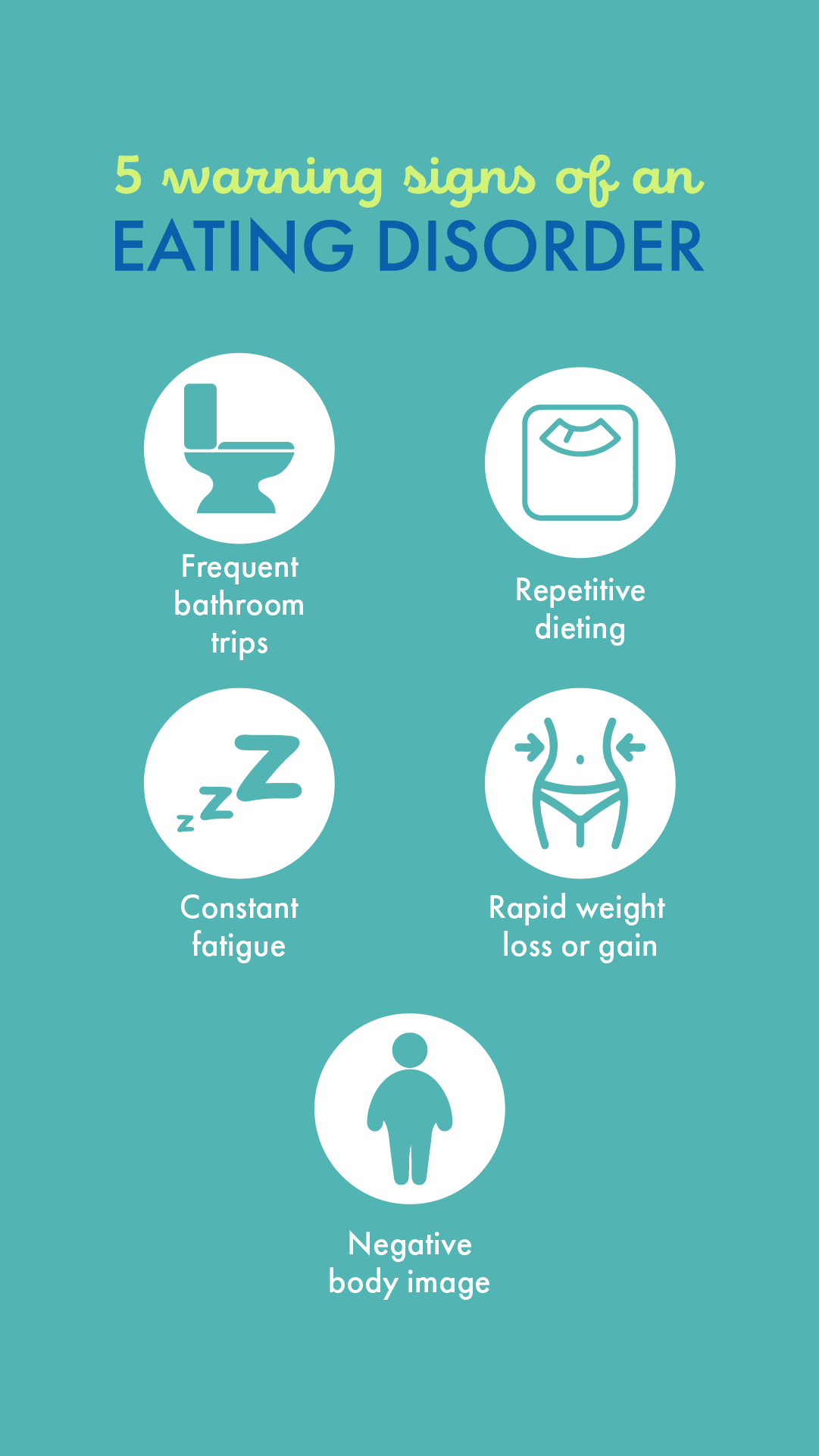
When I open Instagram, it’s not just those influencers that enforce these sort of beauty standards; I see it with my friends too. My friends and I are all worried about posting pictures where we look “too fat” or “I don’t look pretty enough” because that is what we see on our timeline.
February 22-28 is National Eating Disorder Week, so we want to recognize these social standards especially this week because it is so important not to compare yourself to these “influencers” and discover your own self-love.
Eating Disorder Types
Eating disorders can happen to anyone. No matter your race, culture, gender expression, or sexuality, this can affect you too. Here’s the most common eating disorders:
Bulimia
A serious, potentially life-threatening eating disorder. People with bulimia may secretly binge – eat large amounts of food and then purge, trying to get rid of the extra calories in an unhealthy way.
Anorexia
Both an eating disorder and a metabolic condition that results in excessive weight-loss and extreme thinness caused by self-starvation.
Binge Eating
An illness, which involves frequent overeating marked by distress and lack of control. Depression, anxiety, and isolation often accompany binge eating symptoms.
Orthorexia
Orthorexia is a trend that is marked by an obsession with eating healthy. This obsession can be so severe that it can impact your overall health in a negative way. This can cause severe weight loss, malnutrition, and medical problems. This can also cause various mental health problems such as anxiety, body image issues, and obsessive or compulsive thoughts.

Get Help
Local Resources
If you think you or someone you care about is struggling with an eating disorder, get help! WSU has resources that can point you in the right direction.
Counseling and Wellness Services
Counseling can be a great place to talk openly about start opening and discussing your eating disorder. Our counselors can help equip you with the tools you need to help set goals and even help you develop self-love.
Health & Wellness Services
Another place to start is by talking to your primary care provider for more options. Often you must talk to a primary care provider in order to be recommended to a specialist, such as a dietician. Check out the Health & Wellness Services website for information on how to set up an appointment at the WSU clinic.